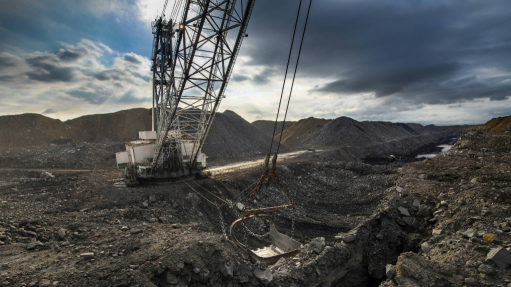
CRUCIAL ROLE
Mining plays a crucial role in economic development and contributing to global supply chains
Photo by: Reuters
In 2023, the global mining sector, including key players in Africa, faced a dual threat of falling commodity prices and rising operational costs, which pressured the financial performance of the world’s top 40 mining companies, according to advisory services firm PwC’s ‘Global Mine 2024’ report, which was launched last month.
Mining remains a pivotal industry globally, playing a crucial role in economic development and contributing to global supply chains; however, the sector’s significant challenges include regulatory environments, infrastructure deficits and socio-political dynamics.
According to the report, global mining revenues dropped by more than 7% despite increased production of key commodities, marking a second consecutive year of revenue decline – a trend not seen since 2016.
This financial strain underscores the need for mining companies to rethink their strategies, focusing on growth and transformation even amid tight profit margins, reported PwC.
Despite these challenges, PwC indicated that the potential for growth remains vast, especially with strategic investments and collaborations between mining companies and governments to create enabling environments.
PwC Africa energy utilities and resources leader Andries Rossouw pointed out that technological advancements and sustainability are at the core of the mining industry’s transformation.
According to Rossouw, the integration of technology, including AI, is crucial for improving productivity, sustainability and safety in mining operations.
AI’s potential to enhance the sector by improving productivity and extending health and safety improvements is significant, he highlighted, adding that the materials necessary for AI technologies (such as copper, zinc and gold) are directly sourced from mining, thereby highlighting the symbiotic relationship between technology and mining.
In this vein, one of the innovative approaches gaining traction is urban mining, which involves recycling materials to extract valuable metals with a reduced environmental footprint.
This method aligns with the global push towards a circular economy and offers a “green premium” owing to its lower environmental impact, said Rossouw.
Urban mining not only supports sustainability, but also helps meet the increasing demand for critical minerals essential for modern technologies and a low-carbon future, he averred.
Further, mergers and acquisitions (M&A) can be employed as a strategic tool for maintaining competitive advantage in the evolving mining landscape, the report revealed.
The focus on critical minerals, such as copper and lithium, has driven a significant portion of M&A activities, the report further spotlighted.
In 2023, 40% of completed mining deals involved the production of critical minerals, a substantial increase from 22% in 2019.
Rossouw said this shift reflects the mining industry’s adaptation to emerging demands and the strategic importance of these minerals.
Sustainability considerations are integral to these transactions, with investors keen on understanding the future performance and long-term viability of mining companies, he emphasised.
Meanwhile, mining companies are increasingly aware of their broader impact on communities, the environment and various stakeholders, said PwC Ghana and West Africa mining leader George Arhin, who stressed the importance of measuring and communicating these impacts transparently.
Accurate and insightful impact assessments provide a comprehensive view that goes beyond financial returns, guiding capital allocation and informing stakeholders, including communities and unions, he said.